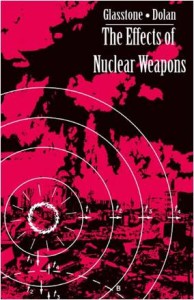Guest Blogger Sarah Schmitt ’14, Professional Writing Studies minor
 This past summer, I was frantically looking for a job. Finals neared closer more quickly than I had anticipated, and before I knew it summer had arrived. I had recently gotten a job at Tanger Outlets near Elon selling clothing. The work was far from fulfilling. I knew I had to pursue a job that would further my aspirations to become a scientist. I applied to more than 50 scientific jobs, both near Elon and near my hometown in Fairfax, Virginia. However, few scientific consulting firms were looking for a temporary paid intern or a junior scientist for just the summertime months. My published undergraduate research and my academic background in the environmental and biological sciences evidently did not make me stand out in the applicant pool. With graduate school looming just ahead of me, I knew that securing a scientific job for the summer would be critical in my eventual acceptance into a graduate school of my choice.
This past summer, I was frantically looking for a job. Finals neared closer more quickly than I had anticipated, and before I knew it summer had arrived. I had recently gotten a job at Tanger Outlets near Elon selling clothing. The work was far from fulfilling. I knew I had to pursue a job that would further my aspirations to become a scientist. I applied to more than 50 scientific jobs, both near Elon and near my hometown in Fairfax, Virginia. However, few scientific consulting firms were looking for a temporary paid intern or a junior scientist for just the summertime months. My published undergraduate research and my academic background in the environmental and biological sciences evidently did not make me stand out in the applicant pool. With graduate school looming just ahead of me, I knew that securing a scientific job for the summer would be critical in my eventual acceptance into a graduate school of my choice.
Just a week after receiving my application, a representative from an important research and engineering company called me in for an interview. According to her, I was one of three candidates chosen to interview in person at the group that worked on nuclear projects, a small branch of the company. Of the three, I was the only one lacking a background in physics or mathematical computations and programming, and I was the only female.
As I eagerly prepared for the interview that I never in a million years anticipated leading to a job interview, I researched and learned more about the company. I critically considered my audience for the interview by studying up on my interviewer and his background who was an engineer and nuclear physicist. I, on the other hand, had not taken physics since high school. The mere thought of meeting this brilliant man was incredibly intimidating. Despite my lack of background in the area, I continued to think critically about my audience and the rhetorical ways in which I could ace this interview to the best of my ability. I prepared some of my academic writing samples and hoped for the best.
Acing the Nuclear Interview
When I came in for the interview, my interviewer met me with a schedule in hand. Not only was I supposed to interview with him, but also with four of his also-brilliant colleagues. All five of the interviewers had annotated copies of my resume. All had my “Professional Writing Studies” minor either circled, underlined, or highlighted. Each one of them was impressed more by my combined scientific background and my capacity to write well than any of my publications. I received a phone call later that day congratulating me on securing the position. It was one of the most unbelievable phone calls I had ever received.
My Role as the “Intern” for the Nuclear and Radiation Effects Group
 I began work the very next week. On my first day, a worn copy of the classic nuclear handbook entitled “The Effects of Nuclear Weapons” was lying on my desk. A few white papers from different partners of the firm trickled into my email. I spent the next few weeks familiarizing myself with the rhetoric of this very small and specific discourse community, and I began editing and re-editing countless papers on nuclear fire initiation after nuclear attacks, skin decontamination after fallout events and medical conditions arising from exposure to nuclear weapons testing. My edits, which comprised of some surface-level corrections but mainly conceptual explanations and descriptions, were in increasingly high demand. Often, I worked more than the 40-hour work week to keep up with the demand for my writing and editing expertise.
I began work the very next week. On my first day, a worn copy of the classic nuclear handbook entitled “The Effects of Nuclear Weapons” was lying on my desk. A few white papers from different partners of the firm trickled into my email. I spent the next few weeks familiarizing myself with the rhetoric of this very small and specific discourse community, and I began editing and re-editing countless papers on nuclear fire initiation after nuclear attacks, skin decontamination after fallout events and medical conditions arising from exposure to nuclear weapons testing. My edits, which comprised of some surface-level corrections but mainly conceptual explanations and descriptions, were in increasingly high demand. Often, I worked more than the 40-hour work week to keep up with the demand for my writing and editing expertise.
While at first I did not realize the value of my work, my bosses sure did. I got a raise the second week on the job and was applauded for my integral role in helping the group meet deadlines for FEMA and the Department of Defense. My work editing the nuclear fire initiation piece time and time again led to my notation as a co-author of the piece. I was asked to spend my last few weeks both editing and writing a primer for disaster planners and first responders disseminating nuclear fallout for disaster planners and first responders (non-scientists). It was the first time ever that a handbook of this extent had ever been authored. The piece has since been published for internal distribution within the company.
In short, this experience was incredible, and I never would have had the opportunity to work with such a brilliant and inspiring group of people had it not been for my Professional Writing Studies minor. In light of my experiences, I cannot stress how significant writing skills are in any discipline, particularly in the sciences. I have encouraged my fellow science majors to hone their writing skills to benefit their future work and professional aspirations, even if they only take a class or two (although I encourage a minor). And I encourage those of you in the PWR/English cohort at Elon to reach out to your friends in the sciences and encourage them to do the same.
A few white papers from different partners of the firm trickled into my email. I spent the next few weeks familiarizing myself with the rhetoric of this very small and specific discourse community, and I began editing and re-editing countless papers on nuclear fire initiation after nuclear attacks, skin decontamination after fallout events and medical conditions arising from exposure to nuclear weapons testing. My edits, which comprised of some surface-level corrections but mainly conceptual explanations and descriptions, were in increasingly high demand. Often, I worked more than the 40-hour work week to keep up with the demand for my writing and editing expertise.
While at first I did not realize the value of my work, my bosses sure did. I got a raise the second week on the job and was applauded for my integral role in helping the group meet deadlines for FEMA and the Department of Defense. My work editing the nuclear fire initiation piece time and time again led to my notation as a co-author of the piece. I was asked to spend my last few weeks both editing and writing a primer for disaster planners and first responders disseminating nuclear fallout for disaster planners and first responders (non-scientists). It was the first time ever that a handbook of this extent had ever been authored. The piece has since been published for internal distribution within the company.
In short, this experience was incredible, and I never would have had the opportunity to work with such a brilliant and inspiring group of people had it not been for my Professional Writing Studies minor. In light of my experiences, I cannot stress how significant writing skills are in any discipline, particularly in the sciences. I have encouraged my fellow science majors to hone their writing skills to benefit their future work and professional aspirations, even if they only take a class or two (although I encourage a minor). And I encourage those of you in the PWR/English cohort at Elon to reach out to your friends in the sciences and encourage them to do the same.
Normal
0
false
false
false
EN-US
X-NONE
X-NONE
/* Style Definitions */
table.MsoNormalTable
{mso-style-name:”Table Normal”;
mso-tstyle-rowband-size:0;
mso-tstyle-colband-size:0;
mso-style-noshow:yes;
mso-style-priority:99;
mso-style-qformat:yes;
mso-style-parent:””;
mso-padding-alt:0in 5.4pt 0in 5.4pt;
mso-para-margin-top:0in;
mso-para-margin-right:0in;
mso-para-margin-bottom:10.0pt;
mso-para-margin-left:0in;
line-height:115%;
mso-pagination:widow-orphan;
font-size:11.0pt;
font-family:”Calibri”,”sans-serif”;
mso-ascii-font-family:Calibri;
mso-ascii-theme-font:minor-latin;
mso-fareast-font-family:”Times New Roman”;
mso-fareast-theme-font:minor-fareast;
mso-hansi-font-family:Calibri;
mso-hansi-theme-font:minor-latin;
mso-bidi-font-family:”Times New Roman”;
mso-bidi-theme-font:minor-bidi;}

 Follow
Follow